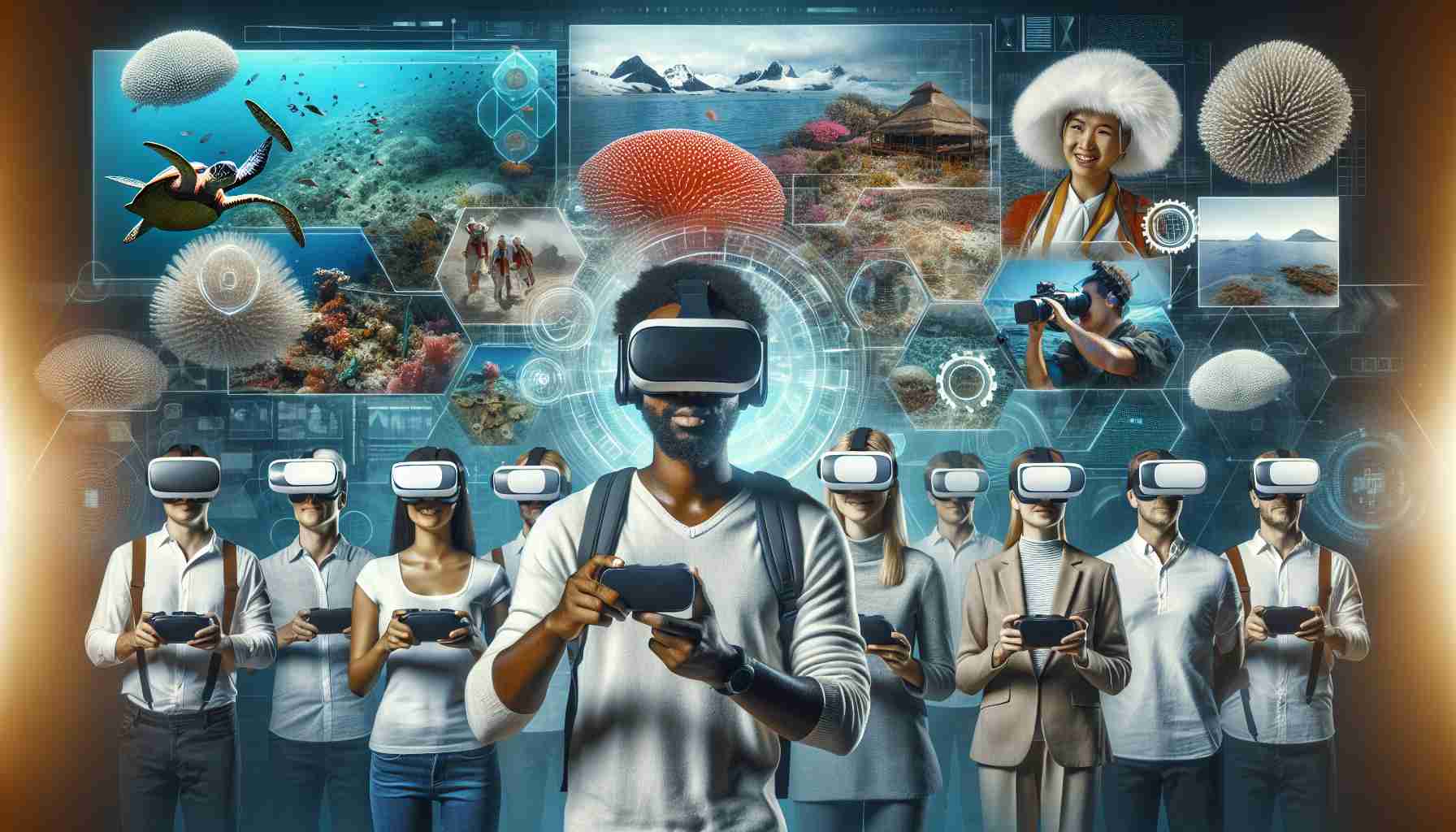Embracing Innovation in Tourism
In recent years, the tourism industry has witnessed a significant shift towards personalized and diverse travel experiences driven by evolving consumer expectations. Travelers are now seeking more than just scenic beauty; they desire cultural insights, stories behind the landscapes, and immersive technological experiences. According to the Ministry of Culture and Tourism, domestic travel in 2023 reached a staggering 48.91 billion outings, marking a 93.3% year-on-year growth. Despite the sector’s vast market size, challenges such as market homogenization and lagging digital infrastructure persist.
Immersive Experiences Through Technology
Leading the charge in this transformation is the introduction of immersive technologies in the form of virtual reality (VR), augmented reality (AR), and artificial intelligence (AI) at theme parks. These advanced technologies not only enhance interactive and immersive experiences at theme parks but also support the innovative development of the cultural tourism industry. With personalized AI-guided tours, real-time information services, and customized recommendations, theme parks like Celebration Valley are redefining visitor experiences.
Integration of Popular IPs for Enhanced Experiences
The strategic decision to incorporate popular digital content, such as the renowned “Mini World,” has been pivotal in attracting younger audiences and enhancing the allure of theme parks. The fusion of creativity and exploration encouraged by IPs like “Mini World” align with the demand for interactive experiences in theme parks, propelling the digitization of parks and the adoption of AR/VR technologies for modern and forward-looking attractions.
Competition and Future Trends
As the industry moves towards digitalization and technological integration, immersive technologies like VR are becoming integral for theme parks to offer unparalleled experiences and new revenue streams. Major international players like Universal Studios and Disney are also leveraging VR to provide extraordinary visitor experiences. The adoption of VR technology not only enhances visitor satisfaction but also introduces innovative revenue models through rentals, value-added services, and franchise opportunities.
The future of cultural and experiential tourism lies in the seamless integration of immersive technologies, ushering in a new era of enriched visitor experiences and heightened competitiveness within the industry.
Revolutionizing Experiential Tourism with Immersive Technology: A Deeper Dive
The evolution of experiential tourism through immersive technology continues to reshape the way travelers engage with destinations and attractions. While the previous article touched on the integration of technologies like VR, AR, and AI in theme parks, there are additional notable aspects to consider in this transformative landscape.
Key Questions and Answers:
1. How does immersive technology impact visitor engagement?
Immersive technologies like VR and AR offer visitors a more interactive and captivating way to explore attractions, triggering heightened emotional connections and memorable experiences.
2. What are the ethical considerations surrounding the use of immersive technology in tourism?
Privacy concerns, data security, and the potential detachment from authentic experiences are crucial ethical dilemmas that arise with the widespread adoption of immersive technologies.
Challenges and Controversies:
One of the primary challenges associated with revolutionizing experiential tourism with immersive technology is the digital divide. Disparities in access to technology and digital literacy may exclude certain demographics from fully participating in these advanced experiences. Moreover, the balance between technological enhancement and preserving the authenticity of cultural heritage remains a contentious issue in the tourism industry.
Advantages and Disadvantages:
Advantages:
– Enhanced storytelling capabilities: Immersive technology allows for richer storytelling, enabling visitors to delve deeper into the narratives and histories of destinations.
– Differentiation and competitiveness: Attractions that leverage immersive technology can set themselves apart in a crowded tourism market, attracting tech-savvy travelers.
– Increased visitor engagement: Immersive experiences create lasting memories and emotional connections, leading to higher visitor satisfaction and potential return visits.
Disadvantages:
– Cost and accessibility barriers: Implementing immersive technology can be expensive, limiting smaller businesses’ ability to adopt these innovations.
– Potential overreliance on technology: There is a risk of overshadowing the natural beauty and cultural authenticity of destinations with excessive technological interventions.
– Resistance to change: Some traditionalists may resist the shift towards immersive experiences, preferring conventional forms of tourism.
As the tourism industry continues to evolve, striking a balance between immersive technology and authentic experiences will be essential in delivering value to visitors while preserving the essence of destinations. Embracing innovation while mindful of potential challenges will be key to ensuring a sustainable and inclusive future for experiential tourism.
For further insights into the evolving landscape of experiential tourism and immersive technology, visit exampledomain.
























